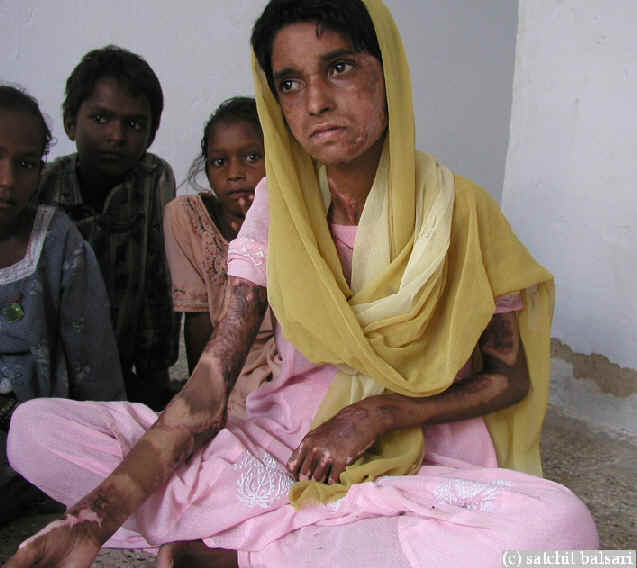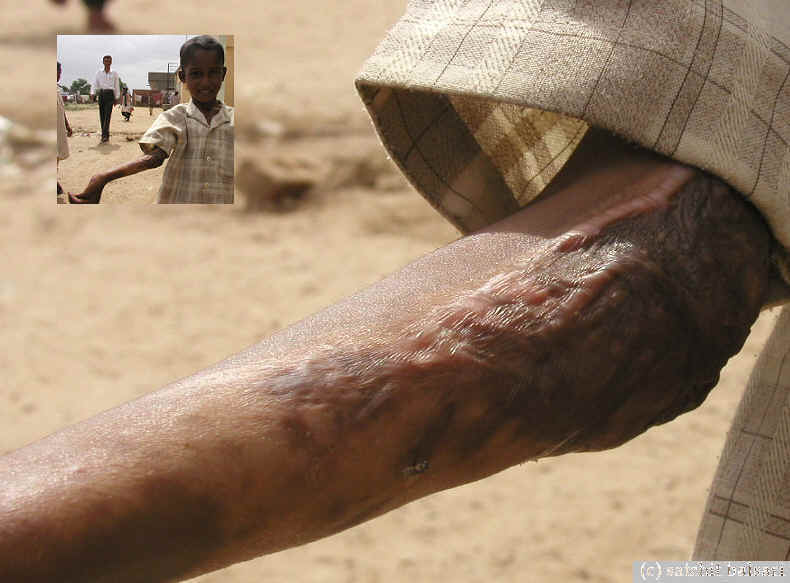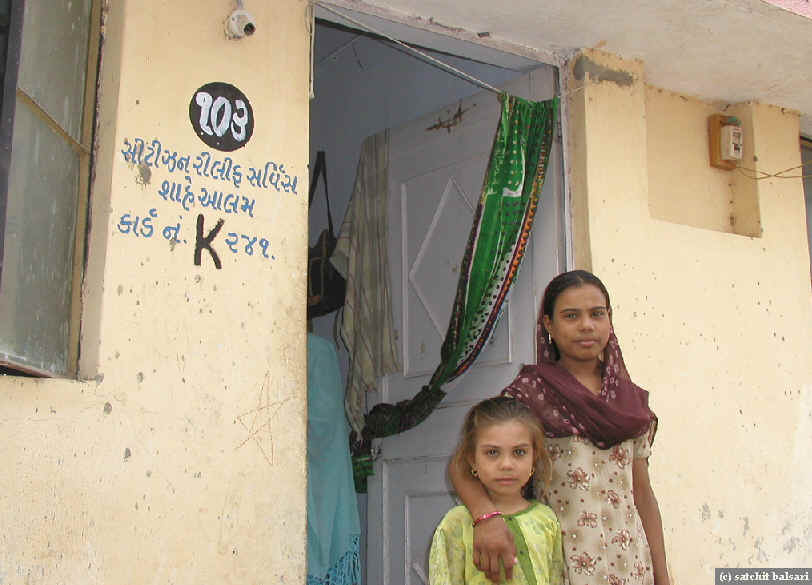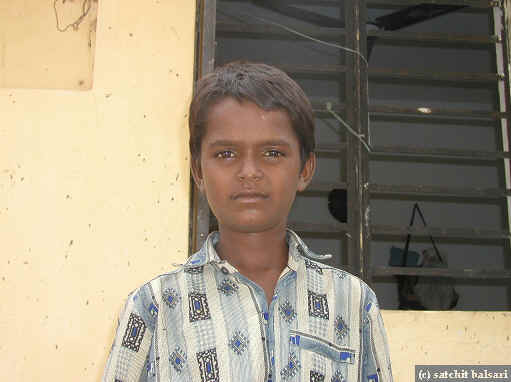
Naroda Patia: The Survivors.
An excerpt from a Human Rights Watch Report (1)released in April reads as follows:
A female eyewitness told Human Rights Watch, "they raped them, cut them and then threw them in a well. They cut them with swords. Everything is gone, you won't even find dogs there." Samuda also witnessed the raping and killing of young girls: "They took young girls, raped them, cut them and then they burned them." Others simply did not have the words to describe the attack: "You won't be able to bear it if we tell you. They are scared, they won't speak, people have been asking for days what happened. What difference has it made? We don't want to go back there. Our lives are in danger there [Naroda Patia].... We won't go back to Patia; we will go anywhere else. We even left without our shoes, all our hard-earned saving are gone." One female resident said, "Some girls even threw themselves into the fire, so as not to get raped."A ten-year-old girl added, "I saw it also, they cut them down the middle." Click here for full Narodia Patia report
These events were dismissed by most as hearsay and rumor. But in August 2002, even the volunteers in Ahmedabad were reeling from the shock of visiting Naroda Patia. They reported that death was omnipresent in Naroda. The streets were littered in the early days with broken glass bangles, that must have once adorned the wrists of women whose charred bodies now lay in mass graves. Under the soot and ash were still seen toppled furniture and pieces of burnt clothes wedged in doorframes. The stench of death was still in the air. The entire locality wore a deserted look for several months, only interrupted momentarily by a flurry of activities during the Presidential visit by His Excellency APJ Kalam.
Volunteers in Ahmedabad who worked with the 'Widows of Naroda' -- an infamous label borne by a large section of the survivors-- recounted in their nightly briefings continuing tales of horror- tales of isolation and grave despair. In the care of the Widows of Naroda, are the surviving children. 'Surviving' -- for many were consumed by the flames in Naroda, the following pictures bearing testimony to those black moments.

Shahjahan Banu, sits in her house all day. She can't leave the new room allotted to her surviving family, for she can't bear to look people staring at her all the time. The other children don't want to play with her because 'she looks weird.' Shahjahan's scars have obviously not healed. Even the physical. During the interview she was incessantly scratching her itching keloids. The itching doesn't let her sleep. 'No one will marry her now' her mother says. 'What will become of her? What will she do?' Shahjahan has not been to school in many years but wishes to continue. Her mother feels there is no point.
Shahjahan says she went to the SRP for help, but the police asked her to return to her society. When she did, the mob surrounded her. Someone hit her on the head and others doused her with kerosene. Then she was set on fire. It was 7 pm. She lay there writhing in pain till 10 pm when the cops arrived. By then, her sister (21y old) who was also burnt, had died.

Shahrukh's story is no different. Except that he can hide his scars so the other children still play with him.

The name plate to Heena's and Niloufer's house now bears a number: Refugee Card Number 241, rehabilitated from from Shah Alam Camp by Citzens Relief Service. Niloufer and Heena were sitting with their grandmother, they recollect. The mob started gathering. After a while they heard firing. Two of their uncles were shot. They called an ambulance which never came. Their father was injured next. They managed to escape with him. All night they sat with him. There was no help. The attacks at Naroda Patia had continued for over 10 hours. 'Everything', they said, 'was finished.' That night they watched their father die.
Niloufer goes to school. She comes home and reads the Koran and then finishes her school homework. The rest of the day she has to attend to the household chores as her mother tries to earn some money. She has no time to play anymore.

Mehmood isn't lucky enough to be able to go to school. There is no money to pay for his school. 'Rakhhad ta hoon sara din.' I roam around all day. 'But one day,' he continiues, 'we will fight them. They burnt our people, the women, the houses, and my friends. I could hear them screaming. I know who did this. They were all from our society. The Hindus and the Sindhis.'
'How will your fight them?' I asked. He fell silent. After a long pause he said, 'With stones and sticks. I'll fight them. And cut their heads.'
(1) http://hrw.org/reports/2002/india/